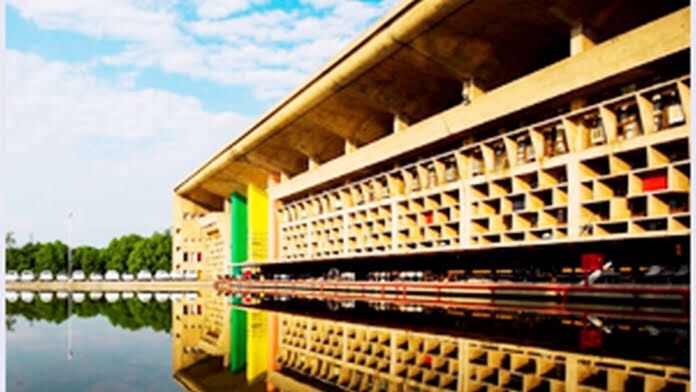Sreya Kanugula
The HC of Punjab and Haryana issued notice upon a writ petition that challenged the Haryana Panchayati Raj (Second Amendment) Act, 2020’s powers that provide 50% of seat reservation to women in elections among local bodies.
The division bench headed by Chief Justice Ravi Shankar Jha had issued the notion on this petition which was submitted by Kailash Bai and Sneh Lata, both female members part of Haryana’s Zila Parishads.
Both petitioners had maintained that the assailed Act restricted election contesting women from general wards and in turn, causing restriction to the women’s participation by 50%.
It was to be noted that the Act, inter alia, had Sections 9, 59 as well as 120 amended as part of the Haryana Panchayati Raj, Act, 1994, that dealt with seat reservation in the Gram Panchayat, Panchayat Samiti as well as the Zila Parishad.
According to the impugned amendment, the Gram Panchayats, Block Samitis, and the Zila Parishad wards were to be numbered sequentially and all the reservations of the even-numbered wards be given to women candidates.
While the odd-numbered were given to the category of “persons other than woman” to contest elections.
The contention made by the petitioners upon this stated that: “Consequently, there are no general or open category seats. As a result of the impugned amendment, women electors who are otherwise eligible to contest elections to the Panchayati Raj institutions have been restricted to contest only from the wards which are specially reserved for women.
Consequently, woman candidates such as the petitioners who wish to contest elections to these institutions shall not be able to file their nomination papers from odd-numbered wards which should have been general wards that are open for all,”
The SC’s decision made in the case of Bihari Lal Rada v. Anil Jain (Tinu), (2009) 4 SCC 1, was given the reliance since it had dealt with the question of a candidate elected from a Backward Class was eligible for the election of the President post, since it was usually filled by members of the general category.
When the Top Court had upheld the election in that case, it had made the observation that,
“The 1973 Act makes available the minimum number of seats to the Scheduled Castes and Backward Classes by way of reservation in proportion to their population. This does not prevent the Scheduled Castes and Backward Classes in getting themselves elected from the unreserved seats on their own merit.”
The petitioners had also made the argument that the reservation laid down by the amendment also manifested illegally and against the provisions and spirit of the Constitution’s Part IX and the 1994 Act of the Haryana Panchayati Raj.
The Constitution’s 243-D Article provided reservation of not less than one-third of seats to women in the institutions of the Panchayati Raj.
The petition also pointed to the effect that the amendment sought for in providing men reservation using the odd-numbered wards, where “persons other than woman” can contest elections.
The High Court was urged by the petition to quash the provisions of the impugned amendment at least to the extent of the restrictions given to women candidates on contesting elections from the general wards, as it was patently illegal as well as discriminatory and violative of the Constitution Articles 14, 15 and 243-D.
It prayed for the Respondents to be given directives by the Court for the necessary amendments to be made in order to let the petitioners’ contest elections from the odd-numbered wards as well.
That is, lif they satisfy the criteria of the 29 eligibility as given under the Haryana Panchayati Raj Act, 1994.
During the interim period of its decision, the petitioner urged the bench to give a stay order on the impugned amendment’s implementation.
Advocates Deepkaran Dalal, Amandeep Singh, and Harmanjit Singh represented both the petitioners.

